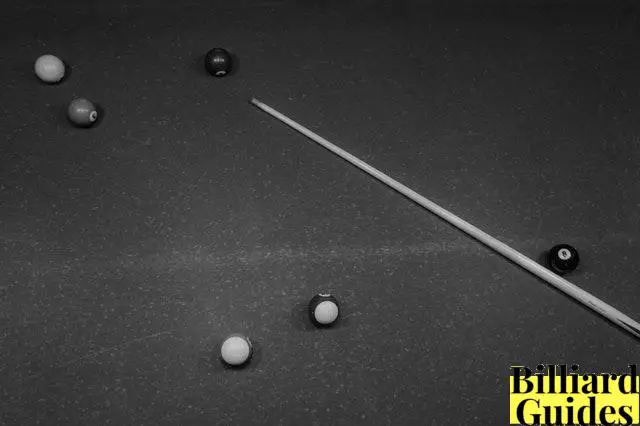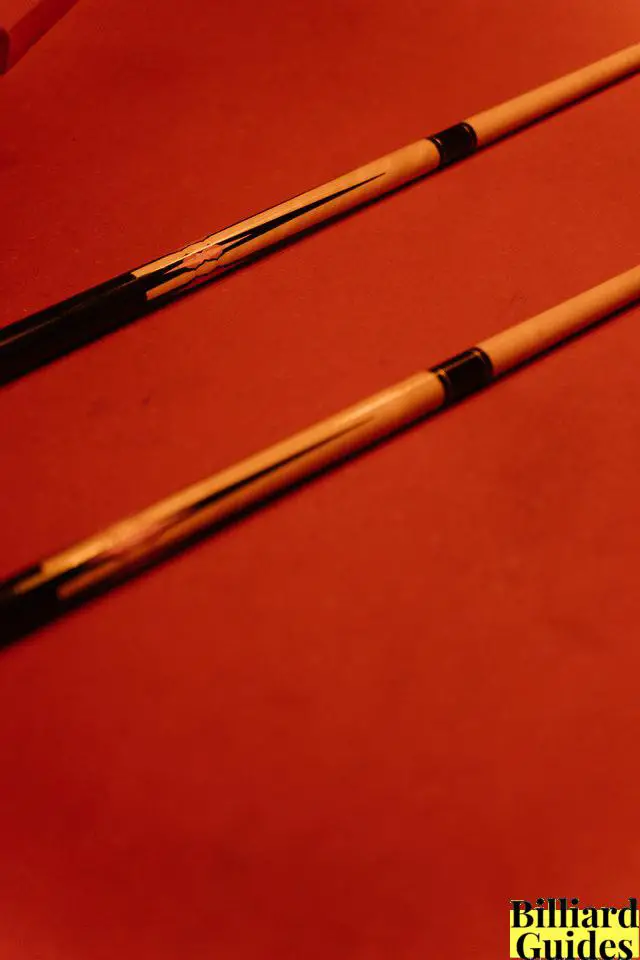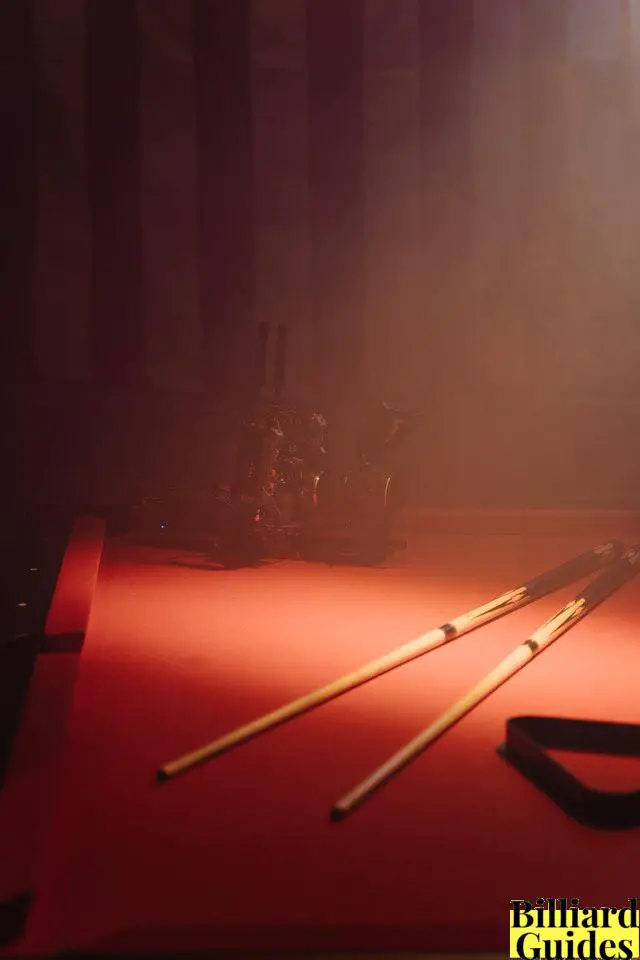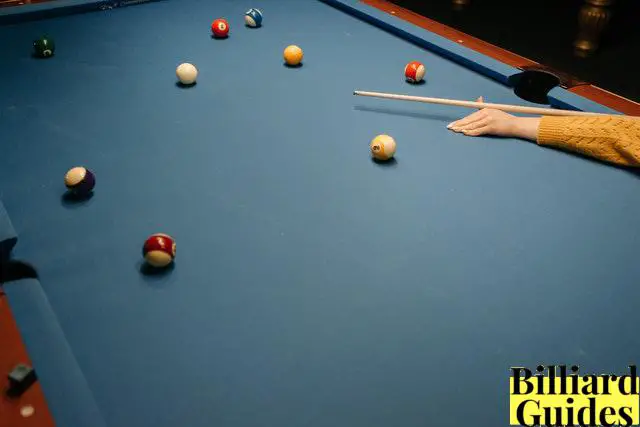When you’re new to the game of pool, choosing a pool cue may seem like a daunting task. With so many different types available, it can be difficult to know where to begin. However, by understanding what you want in terms of quality and design, your options will become much clearer. The first thing you’ll need is information about what kind of weight and length suits your style. From there, it’s just a matter of finding the right materials for your needs and personal preference! Choosing a pool cue isn’t as complicated as it seems- with these steps in mind, finding the perfect one should be easy no matter how inexperienced you are!
How to Choose a Pool Cue for You

Choosing a pool cue can be tricky- especially if you’re new to the game. You’ll need to think about weight, length, materials and more before you start thinking about anything else. Choosing a pool cue is an investment, so it’s important that they’re suited to your needs.
If you want something lightweight and easy to use, then a graphite or aluminium cue might be just what you’re looking for. If you’re into something heavier and more durable, then consider a maple cue instead. The weight of the stick also matters- light cues go well with fast pace games while heavy cues are better at helping you control the ball in slower-paced ones. Cues come in various lengths from around 58 inches all the way up to 62 inches. You should consider your height when choosing a cue- if you’re tall, go for something longer whereas shorter players might prefer something around 58 inches in length instead.
If you want to get truly personalised with your pool cue then there are plenty of different materials to choose between! Many people like to use maple cues because they are inexpensive, durable and easy to use. However, if you really want to invest in your game then Irish-made ash cues can be a great choice. They tend to last longer than maple but are often harder to use at first! Other materials might include maple with graphite or fibre inserts or even high-tech resin materials. While these might not be as easy to control for beginners, they are extremely lightweight and durable.
What Kind of Pool Cue do You Want?

When you’re choosing a pool cue, it’s important to keep in mind what kinds of games you want to play. Different cues suit different purposes- if you want something lighter and easier to use then graphite or aluminium cues might be the way to go. If you want something heavier and more durable, then there are plenty of maple cues designed for you!
The weight of your cue is important in terms of how fast-paced your game is. Light cues are great for quick games while heavy cues can help you control the ball better in slower-paced games. Cues come in various lengths from around 58 inches to 62 inches, so you can choose a cue that’s right for your height too.
If you want to invest in something truly personalised then there are plenty of materials you can choose between! Many people like using maple cues because they’re inexpensive, durable and easy to use. However, high-quality ash cues can be a great choice too- they’re harder to use at first but last longer than maple cues. There are also plenty of other materials you can choose from such as maple with graphite or fibre inserts or even resin materials that offer lightweight durability!
The next decision you’ll need to make is whether you want a two-piece or three-piece pool cue. If you’re new to the game it might be worth sticking with a traditional one-piece cue, but that’s up to personal preference. A two-piece cue can help you transport your stick easily while still offering an excellent quality hit. Three-piece cues are great for beginners because they’re easy to replace and repair, but they can be a bit unwieldy.
Choosing your pool cue is all about balancing quality and design with personal preference. You’ll need to know what you want in terms of weight, material, length and more before you start thinking about anything else. If you’re new to the game then it’s best to stick with a traditional one-piece cue, but otherwise, there are plenty of different materials and lengths you can choose from!
The Different Types of Cues Available

Pool cues can be classified in a variety of ways. It is important to understand the different types of cues and what they offer in order to make an educated purchase. The following are some examples:
The most common type of pool cue, these generally come with one-piece construction and are approximate 58″ in length. These are generally affordable and most players find them sufficient for various games. They might however lack the durability and control desired by experienced players.
These cues offer a better balance between durability and price and come with a two-piece design. They also provide an excellent hit that is more on the aggressive side. These do require regular maintenance but not as much as some other models. This is a great choice for someone who is interested in broadening their horizons and moving beyond the novice level.
For those who are looking for a high-performance cue, three-piece cues may be worth considering. These usually come with maple shafts and can be quite expensive, but offer excellent control due to their length. They also require little maintenance. These cues are best for those who play more competitively and require a high degree of accuracy. They also need to be handled with care as they can break easily if mishandled.
Many players like using wooden cues because they’re inexpensive, lightweight and easy to use. However, there are plenty of other materials you can choose from- graphite or fibre inserts offer lightweight durability while resin materials come in a variety of weights and offer excellent control.
Tips on How to Maintain Your Cues
A good way to maintain your cues is by wiping it down with a damp cloth after each use. This will ensure that the cue remains in pristine shape. A damp cloth will be enough for basic maintenance but, you can also buy a special cue cleaner for a more thorough polish.
In addition, it is a good idea to purchase a cue case that will both protect your cue from being scratched and keep the humidity constant.
When you’re done with your game, always remember to store your cues in a secure place where they won’t get tangled or damaged. You can also put them in a cue case to keep them in the best possible condition.
You should never store your cues against an outer wall or in tight spaces where they can get damaged or even placed under direct sunlight. They should also not be stored with the tips facing down as this may loosen your tip and cause it to fall off.
Many people like using wooden cues because they’re inexpensive, lightweight and easy to use. However, there are plenty of other materials you can choose from- graphite or fibre inserts offer lightweight durability while resin materials come in a variety of weights and offer excellent control.
Other Accessories Needed for Playing Pool

Besides the right cue, you’ll also need some balls. The game is played with two sets of balls- one white and one coloured (usually red). These are designated as being in your “cue ball” pocket, so it’s important they are consistent. Some people play with matching colours, but this is not always necessary. You can also change the colours if you want to keep it interesting.
Lastly, you will need to provide chalk for lining up shots. This is optional, but chalk offers a more consistent shot that can be drawn back upon easily.
Most players will need to use a combination of their fingers and/or cue tip, but professional players will sometimes use an actual chalk holder.
When you’re done with your game, always remember to store your cues in a secure place where they won’t get tangled or damaged. You can also put them in a cue case to keep them in the best possible condition.
You should never store your cues against an outer wall or in tight spaces where they can get damaged or even placed under direct sunlight. They should also not be stored with the tips facing down as this may loosen your tip and cause it to fall off.
By investing in a pool cue, you’re preparing yourself for years of fun. It’s not just a game- it’s an experience you can share with family and friends, or keep to yourself for your own enjoyment. Take the time to find the perfect cue that will let you play to your full potential without being too hard on your wallet!
Conclusion
So, what kind of pool cue do you want? Do you need a wood or fibreglass cue with an affordable price tag and easy maintenance options? In this article, we’ve given some great advice on how to choose the right pool cues for your specific needs. We hope it has been helpful! If not, let us know- our team of experts are here to help make sure that choosing a new pool cue is as simple as possible by providing expert guidance in all facets of the process from material selections to tips on where best to store them when they’re not being used.